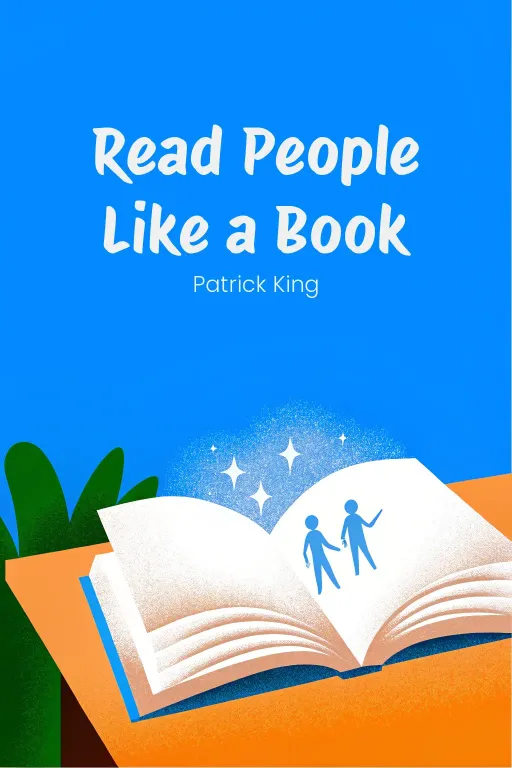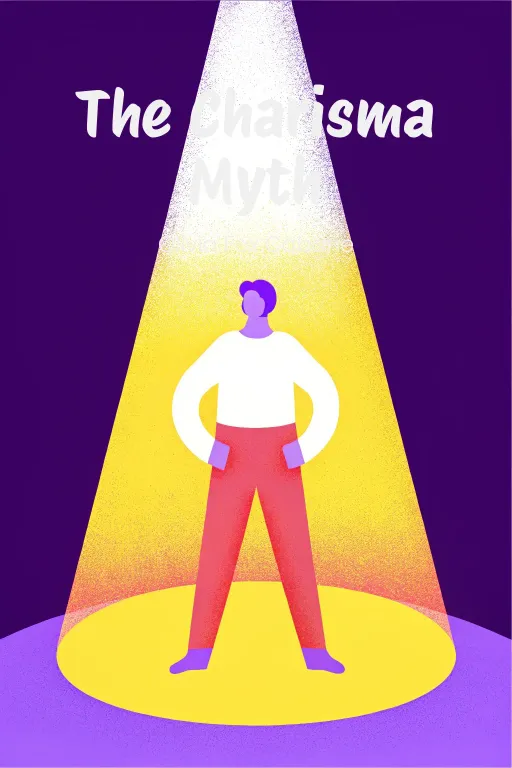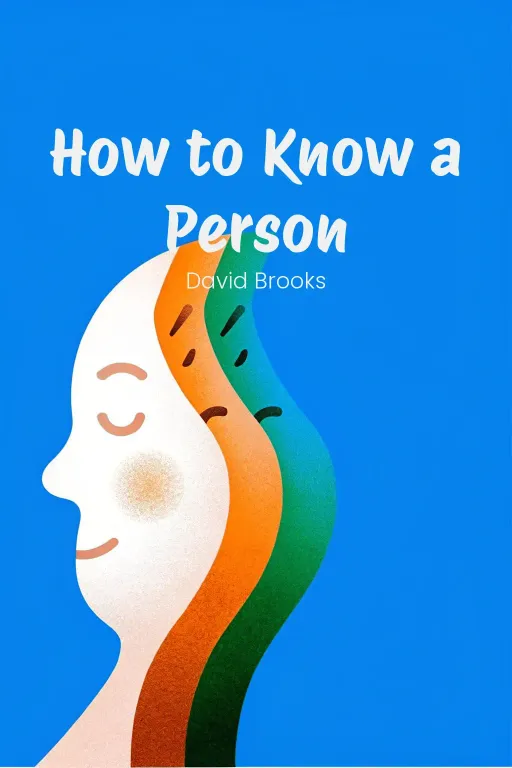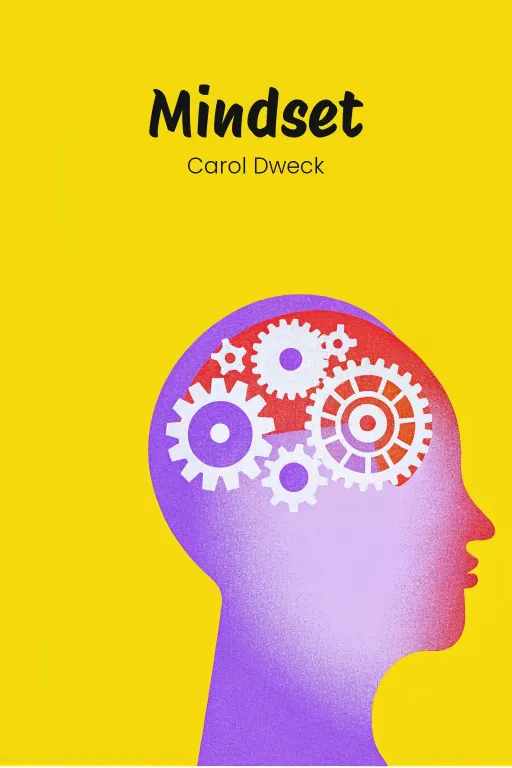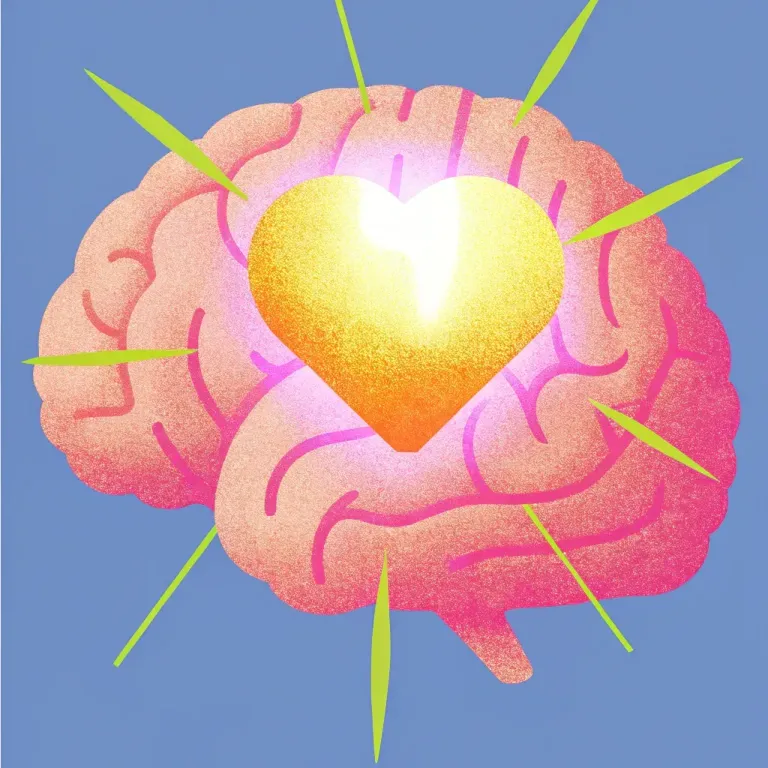
Master Your Emotions: EI Powers
Podcast by The Mindful Minute with Autumn and Rachel
Introduction
Part 1
Autumn: Hey everyone, welcome! Today, we're diving deep into something that can totally change how you live your life: emotional intelligence. Rachel: “Rewire" our brains, Autumn? Seriously? Are we talking self-help fluff, or is there some real substance here? Autumn: Real substance, Rachel. Think about it – how often do your emotions actually drive your decisions, even more than logic does? Whether it's staying cool before a big presentation or navigating tricky family situations, emotional intelligence, or EI, can “really” make or break things. Rachel: Okay, that's a fair point. Though, I'm not sure staying "cool" will work with my family. So, what exactly is this emotional intelligence superpower? Autumn: So, today we're taking inspiration from Daniel Goleman's famous book, Emotional Intelligence: Why It Can Matter More Than IQ. Goleman looks into why understanding and managing your emotions can be more important than just being smart, especially when it comes to succeeding, building relationships, and staying healthy. Rachel: So, let me get this straight, EI is that secret thing that successful people have, and we've all been too busy focusing on grades and resumes to notice? Autumn: Precisely. Goleman looks at the science behind it all, showing why things like empathy, self-control, and people skills are key to unlocking our potential. Rachel: Got it. So, where exactly are we going with this discussion today? Autumn: We're going to break down emotional intelligence piece by piece. First, we'll explore the science – where emotions come from and why our brains don't always play nice with logic. Then, we'll see how EI can reshape your relationships, boost how you work, and make teamwork better. And finally, we'll talk about how to actually improve your EI – what schools, workplaces, and even you can do to build a stronger, more empathetic world. Rachel: From brain science to boardroom success to a better you? Alright, Autumn, I'm intrigued. Let's see if this actually lives up to the hype.
The Foundations of Emotional Intelligence
Part 2
Autumn: Okay, Rachel, let's lay the groundwork here. Before we dive into how EI makes you a better leader or partner, we need to understand its origins. And, as always, biology plays a significant role. Rachel: Of course, it does. Let me guess: something about brain regions and how they make us tear up during Pixar movies? Autumn: Close, but it's more profound than simple emotions. Two critical players in your brain are central to EI: the amygdala, responsible for the "fight or flight" response, and the prefrontal cortex, which governs rationality and impulse control. Rachel: So, the amygdala is like that hyperactive roommate who panics over everything, and the prefrontal cortex is the calm, rational adult saying, "Let's think this through"? Autumn: Precisely! The amygdala reacts in milliseconds—like pulling your hand away from something hot. Great for survival, but it can hijack your brain in emotional situations. Ever said something in anger and instantly regretted it? That’s an amygdala hijack. Rachel: More often than I’d like to admit. I see how that's evolutionary, though – overreacting when there’s a tiger in the bushes makes sense. Snapping at a co-worker? Not so much. Autumn: That's the modern dilemma! The prefrontal cortex is what tempers those overreactions. So, when someone cuts you off in traffic, instead of chasing them down, you think, "It's not worth the stress or the speeding ticket." That pause, that regulation, that's emotional intelligence at work. Rachel: So, "emotional regulation" is basically just not losing it during rush hour? Autumn: That’s one example. Regulation is stepping back and consciously choosing how to respond, rather than letting emotions control everything. That's why airline pilots, for example, are trained to remain calm during emergencies. Their prefrontal cortex needs to override the amygdala to enable clear-headed decisions. Rachel: So, we're all just aspiring to be pilots in life – calm under pressure? But where does empathy fit into this whole brain discussion? Autumn: Great question. Empathy is where we start considering other people's emotions, not just our own. And it’s powered by observing cues—facial expressions, tone, body language. The amygdala gets credit here too, because it helps you notice when someone’s upset. Rachel: Aha! So, the same brain region that freaks out about tigers is also trying to figure out if my friend is angry that I forgot their birthday? Talk about multitasking. Autumn: Pretty much. But empathy activates the whole brain—using logical and emotional signals to help you connect. Picture a teacher noticing a student looks anxious before a big exam. If they’re empathetic, they adjust their approach: a softer tone, encouragement instead of criticism. That builds trust. Rachel: So understanding emotions isn’t just about managing yourself—it’s about reading others and adapting? Autumn: Absolutely. And this leads us to the psychological components of EI. First, self-awareness: recognizing what you’re feeling and why. Rachel: Sounds easier said than done, right? Autumn: It’s the foundation for everything else. Without self-awareness, you can’t regulate your emotions or connect with others. Think about it, how can you empathize if you don’t even know when you’re angry or stressed? Rachel: So, having self-awareness is like looking at your car's dashboard. You can’t fix something if you don’t know the engine’s overheating. Autumn: Perfect metaphor! When people ignore their feelings or don’t understand them, it’s like driving blind. And then it manifests in poor decisions or conflict—like that burglar, Richard Robles. His inability to manage his fear or anger led to catastrophic mistakes. Rachel: Ah, the famous “emotional hijacking” moment. Letting emotions override logic. But isn't all this EI stuff basically about not letting that happen over and over again? Autumn: Exactly, and that's why self-awareness is critical. Once you know what you're feeling, you can lean into emotional regulation—our second pillar. Remember, EI doesn't mean you suppress emotions; it means you manage them constructively. Rachel: Right. Like reframing criticism as useful feedback instead of a personal attack? Autumn: Exactly. Regulation is a muscle—you develop it by practicing patience, seeking perspective, and pausing before reacting. You can even train it with mindfulness, which boosts awareness of emotional triggers, so they don’t take you over. Rachel: You hear that, internet commenters? Deep breaths before typing! Autumn: If only it were that simple! All jokes aside, regulation and empathy are the bedrock for building deeper connections—not just resolving conflicts but preventing them. Emotions were designed not just for survival, but for collaboration. Rachel: Okay, let's get evolutionary for a second. How did emotions prevent our caveman ancestors from killing each other over cave space? Autumn: Well, think of it this way, empathy and connection were survival tools. If you showed empathy instead of hostility to your group, you’d share resources, protect one another, and resolve conflicts without weakening the tribe. Cooperation made early humans stronger together. Rachel: Like the Chaunceys in that tragic train crash—the ultimate emotional connection driving selfless action? Autumn: Exactly. Their love for their daughter overpowered every thought of self-preservation. It’s a reminder of how deeply emotions motivate us, often in heroic ways. Rachel: So, emotions aren't just instincts—they’ve become this moral compass for us as humans. Pretty profound stuff, Autumn.
Emotional Intelligence in Relationships and Society
Part 3
Autumn: So, understanding these core elements really sets the stage for seeing how EI plays out in real life, in relationships, at work, even in society as a whole. It's not just about you, it's about all of us. Rachel: Okay, so we're going from, "How do I not lose it with my partner?" to "How do we, as a society, not lose it with each other?" Got it. So, let's start at home. What does EI look like in the day-to-day of our closest relationships? Autumn: Well, your personal relationships are really where EI is put to the test. Empathy is key here, it allows us to really understand what the other person is feeling. Rachel: Sounds good in theory, but, let’s be honest, emotions get messy, and they get messy fast, right? Autumn: That's exactly why EI is so important. John Gottman's work on marriages has shown how crucial it is. Certain emotional habits, especially empathy, build stronger connections, while destructive behaviors break them down. Rachel: Ah, Gottman, the "Four Horsemen of the Apocalypse" guy, right? Criticism, defensiveness, stonewalling, contempt? Autumn: Yes, that's him. He found that those four behaviors are really strong predictors of divorce. And contempt is the worst of them all. Rachel: Contempt, that's the sarcastic remarks, the eye-rolling, the "Why are you even doing this?" moments, right? Autumn: Exactly. Contempt is a sign of emotional disconnection, and that “really” erodes trust. Couples who do well are emotionally attuned; they can recognize what each other is feeling, even when they're fighting. Rachel: So, if my partner and I are disagreeing about, say, the thermostat, I should pause and say, "Okay, what's the real emotion underlying this? Are you feeling unheard, or are you just cold?" Autumn: Precisely! EI isn't about avoiding conflict; it's about working through it constructively. Take non-defensive listening, for instance. Instead of snapping back with "Well, you always do this," you stop, listen, and really try to see things from their perspective. Rachel: And resist the urge to just say, "Maybe you should put on a sweater." Got it. Autumn: Seriously, just that pause can defuse so much. When people feel heard and valued, misunderstandings tend to disappear, and the connection gets stronger. Rachel: Okay, but let's move beyond dinner table discussions. What about at work? Does EI even matter when, say, your colleague in Marketing won't respond to emails? Autumn: Oh, absolutely. EI is a total game-changer in the workplace, especially when it comes to collaboration and leadership. Rachel: I'll admit, empathy in the office can be a tough sell. Deadlines don't exactly encourage you to slow down and feel what other people are feeling. Autumn: I get that. But it turns out that empathetic leadership actually leads to better team performance. Look at Bell Labs, which was such an innovative place. The "stars" there weren't just technical geniuses; they were also emotionally intelligent connectors. Rachel: Wait, people excelled not because of their coding skills but because of… teamwork? Autumn: Exactly! These people built trust, resolved conflicts, and knew how to work the office network. People went to them for solutions because they made everyone feel heard. Rachel: So, it's not enough to be brilliant if you treat everyone around you like a cog in a machine. Right got it. Autumn: Right. It's about combining competence with emotional awareness. Companies that invest in EI training, like leadership coaching and team-building, report higher job satisfaction and greater productivity. When employees feel valued and understood, collaboration improves significantly. Rachel: Okay, that's the workplace. But what happens when you're in an environment where emotional tools are completely absent? What's the wider impact of that? Autumn: That's where things get serious. Emotional illiteracy, that inability to understand or manage emotions, has massive consequences, especially for young people and vulnerable communities. Rachel: Are we talking about more than just the occasional emotional outburst here? Autumn: Definitely. A lack of emotional skills can lead to aggression, instability, even violence. The story of Khalil Sumpter comes to mind; this was a high school student in Brooklyn who shot two classmates over a petty argument. Rachel: I'm guessing it wasn't just about the argument itself, but about deeper emotional issues? Autumn: Exactly. The research suggests that emotional illiteracy, especially in underserved communities, leaves young people without the tools to resolve conflicts, which fuels cycles of violence. By the early 1990s, it was clear in the sharp rise in juvenile crime rates in the US. Rachel: So it sounds like these kids weren’t just failing math; they were missing emotional education. Autumn: Precisely. That's why schools with social-emotional learning, or SEL, programs see such incredible results. They teach children how to recognize and manage emotions, develop empathy, and resolve conflicts without violence. Rachel: Sounds like you're upgrading their emotional operating systems, so they don't crash later on. Autumn: Absolutely! SEL programs have been linked to fewer instances of bullying, better academic performance, and stronger peer relationships. Rachel: It sounds like emotional intelligence could do more for society than a lot of big flashy policy initiatives. Autumn: It “really” could. And when EI is scaled up—think leaders who are emotionally intelligent—it leads to broad systemic change. Leaders who address problems with empathy and make ethical decisions inspire trust, collaboration, and inclusivity. Rachel: Let me guess – emotionally intelligent leaders handle controversial topics without causing total chaos? Autumn: <Laughs> That's one way to put it! They resolve conflicts consciously, take diverse perspectives into account, and ensure fairness. This strengthens communities and organizations and leads to sustained, positive outcomes. Rachel: So, scaling from "me" to "we." EI as the bridge. Autumn: Exactly. Personal EI helps you build stronger relationships, but on a broad scale, it can transform workplaces, communities, and even entire societies into more collaborative and compassionate spaces.
Cultivating Emotional Intelligence for Lifelong Growth
Part 4
Autumn: So, we've established why EI is so crucial. Now, how do we actually develop it, you know, throughout our lives? Rachel: Hold on—"throughout our lives"? So, this isn't some quick fix? Autumn: Not at all. Think of cultivating EI as a lifelong journey. It starts in childhood and evolves as we grow. It's about gradually rewiring how we respond emotionally, learning to control our impulses, and making empathy second nature. Rachel: Okay, let’s break down this “lifetime approach.” Let's start at the beginning, with what you’re calling "childhood emotional bootcamp." Autumn: Right. The foundation of our emotional intelligence is basically set during childhood. Kids pick up emotional skills from their interactions with parents or caregivers—how to express feelings, resolve conflicts, and understand others' perspectives. These adults are like their first EI coaches. Rachel: So, the emotional environment you grow up in becomes your default setting, in a way? Autumn: Precisely. Take a child, we'll call her Sarah. She’s feeling left out at school, and her first reaction is to get angry and push away the friend who rejected her, instead of saying how she feels. Without some guidance, Sarah might continue reacting in ways that damage her relationships. Rachel: Right, but what if someone helps her work through it? Autumn: That’s where emotional coaching comes into play. A parent or teacher could help Sarah name her emotions—like sadness or frustration—and then help her communicate these feelings instead of lashing out. Little interventions like these help kids learn to manage their emotions early. Rachel: I see. But what happens when parents don't provide that kind of support? Autumn: Unfortunately, the impact can be long-lasting. Studies suggest that children without strong emotional support often struggle with everything from chronic anxiety and difficulty forming close relationships to a general sense of mistrust later in life. Rachel: That’s a harsh lesson: emotional ignorance doesn't just vanish; it compounds. But let's jump ahead. What if you're an adult who missed out on these early lessons—are you simply out of luck? Autumn: Thankfully, no. That's where neuroplasticity comes in—the brain's ability to essentially rewire itself. Even as adults, we can learn to better process emotions, heal from past hurts, and develop healthier emotional responses. Rachel: Neuroplasticity to the rescue! So, we're not permanently stuck with the emotional hand we were dealt as kids? Autumn: Absolutely not. Look at Holocaust survivors, for instance. Even after enduring unimaginable trauma, many were able to show incredible resilience by reframing how they responded emotionally. They didn't erase the past, but they discovered how to regain agency and find meaning. Rachel: Okay, but doesn't that kind of transformation—especially after trauma—seem incredibly difficult? Autumn: It is, absolutely. But tools like cognitive-behavioral therapy can be very effective. CBT helps individuals challenge negative thought patterns and emotional responses. Exposure therapy – gradually facing triggers – can reduce fear and anxiety. Rachel: And I imagine community plays a significant role in this rewiring process? Autumn: Exactly. Relationships are key—whether with friends, family, or therapists. Feeling safe enough to express yourself and receive validation is incredibly powerful. It not only aids healing but also reinforces positive emotional patterns. Rachel: Alright, so we’ve covered healing and rewiring. Now, what about that marshmallow story you mentioned earlier—the impulse control element? Autumn: Ah, yes—the famous Marshmallow Test. Preschoolers were given a choice: eat one marshmallow right away, or wait and get two. Rachel: High stakes in the snack world. Autumn: It wasn't really about the marshmallows but impulse control. The kids who waited showed better self-control. Decades later, they had stronger coping skills, resilience, and even academic success. Rachel: So, impulse control as a kid predicts success later on? That's a lot of pressure riding on a single marshmallow. Autumn: It is! But here's the good news: self-regulation can be strengthened at any age. Techniques like mindfulness help adults pause, become aware of their emotions, and resist acting impulsively. Rachel: So, instead of jumping into an argument, you take a moment to understand why you're upset? Autumn: Exactly. Mindfulness creates that crucial space between feeling and reacting. It’s one of the most effective ways to align your emotions with your long-term goals. Rachel: Okay, so we’ve addressed emotional rewiring and impulse control. What about the bigger picture? How do we scale this, and take emotional awareness from individual growth to the community level? Autumn: That’s the exciting part. Emotional education isn't just for children or therapy sessions—it's being baked into school curricula through programs like Self Science. Rachel: "Self Science"? That sounds like something out of a sci-fi movie. Autumn: It's actually simple but powerful. The curriculum teaches children to recognize, manage, and empathize with emotions. Schools adopting this approach have seen fewer behavioral issues and stronger relationships among students. Rachel: So, it’s not simply about creating emotionally healthy individuals; it's about improving the environment they're is in too? Autumn: Exactly. The impact radiates outward. Students are more engaged academically and learn conflict resolution, which creates a culture of cooperation and understanding. Rachel: And what about adults? Surely they benefit too? Autumn: Absolutely. You have mindfulness workshops or even therapeutic art, which emphasize stress reduction and emotional awareness for adults. These interventions can reframe negative experiences as well as strengthen relationships. Rachel: So, emotional tools “really” are universal— applicable to toddlers dealing with playground squabbles and CEOs navigating boardroom tensions? Autumn: Exactly, Rachel. Emotional intelligence transcends age and situations. When individuals embrace it, they heal and grow. When communities prioritize it, societies become more collaborative and compassionate. Rachel: So, EI isn't just a personal tool—it's a societal upgrade and builds bridges at every level. Autumn: That’s the key takeaway. Investing in emotional intelligence, whether for one person or an entire community, transforms lives. It's all about learning, growing, connecting, and, like I said, it's never too late to start.
Conclusion
Part 5
Autumn: Okay, so to bring this all together, emotional intelligence is really the bedrock for navigating the ups and downs of life. It’s about understanding your own emotions, managing them effectively, and connecting with others on a deeper level. You know, from the amygdala's basic survival responses to the prefrontal cortex's logical thinking, it’s about integrating our biology with conscious effort. Rachel: Right, and that integration shapes everything, doesn’t it? From how we handle disagreements with our partners about the smallest things to how we address major societal issues. It's not just about knowing yourself; it's about empathy, teamwork, and making sense of emotional turmoil. So turning chaos into clarity. Autumn: Absolutely! And what’s really great is that emotional intelligence is a skill you can actually develop, no matter where you're starting from. Whether you’re helping a child navigate their early experiences, changing your own emotional reactions, or promoting emotional wellness in a professional setting or a community. Rachel: So, next time you feel your amygdala taking over, just stop, take a breath, and think it through. Because every little bit of emotional intelligence we put into practice makes the world a slightly better place, for ourselves and for everyone else. Autumn: Precisely! Building a future that’s more empathetic, resilient, and connected starts with each of us individually. So, ask yourself, what is one thing you can do today to practice your emotional intelligence?






